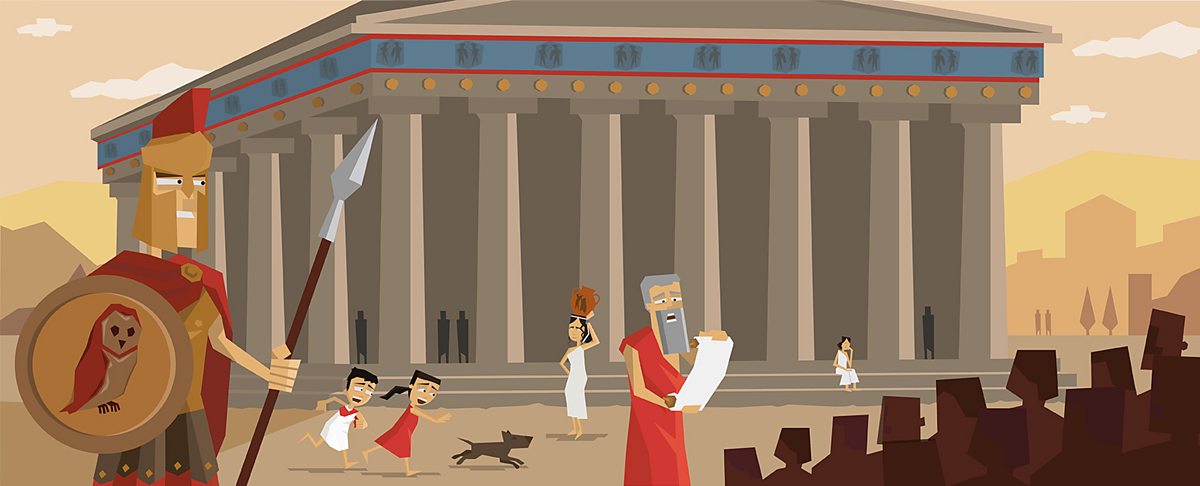09 September 2022
Vocabulary is the focus of this week’s Talk Time.
We’ve just begun a new Science topic and with it comes new Science vocabulary.
This half-term, we’re all biologists, learning specifically about Living Things and their Habitats. Here’s a list of key words that are being learnt and applied as part of our learning. Over the half-term, practise using these words with your child.
Years 1 and 2 Biology vocabulary:
| alive | a living thing; not dead |
| dead | no longer alive |
| habitat | the place where an animals or plant lives |
| basic needs | the things that a plant or animal need to live |
| food chain | shows who eats who in a habitat. |
| predator | An animal that hunts and eats other animals |
| prey | An animal that is eaten by another animal |
Years 3 and 4 Biology vocabulary:
| vertebrate | an animal with a backbone |
| invertebrate | an animal without a backbone |
| warm-blooded | animals that can control their body temperature (birds and mammals) |
| cold- blooded | animals that cannot control their body temperature; their body temperature changes with the air or water temperature (all animals except birds and mammals) |
| organism | a living thing, animal or plant |
| insect | an invertebrate with six legs |
| classification key | a set of questions about the characteristics of organisms; used to identify a living thing or decide which group a living thing belongs to. |
| environmental danger | something that can threaten a habitat |
Years 5 and 6 Biology vocabulary:
| taxonomy | The science of naming, describing and classifying organisms |
| organism | a living thing, animal or plant |
| kingdom | The highest division in the classification system; there are five kingdoms (animals, plants, fungi, protists, monera) |
| flora | Living things that are plants |
| fauna | Living things that are animals |
| bacteria | Single-celled organisms; most or which can only be seen with a microscope |
| fungi | Organisms that can feed on the remains of other living things; can be single-celled or multi-celled (eg mushroom, yeast, mould) |
| micro-organism | An organism that can only be seen through a microscope |
Some of these words have been introduced already this week but there may be others that are going to be covered in the coming weeks.
History – The Ancient Greeks
It is great to see all the children back in school and ready to learn.
Our History learning is Ancient Greece.
Today, the children wrote about things they would like to know more about.
I’d like to find out about the Greek Gods. Noah
What did the Ancient Greeks do for a living? Evie
I wonder if they had a king or queen?
How big is Greece?
Below is the related vocabulary that we will be learning throughout our lessons.
- chronology – putting events in chronological order means: listing them in the order in which they happened
- empire – a group of countries or territories that have one ruler
- democracy – people have a say in how the government is run by voting
- government – a group of people who have the authority to make decisions that are for the good of the people and the country
- legacy – traditions, skills and knowledge passed on through history
- citizen – a person who is a member of a particular country and has rights because of being born there or living there
- influence – to have an effect on people or things
- bias – a personal and sometimes unreasoned judgement
- oligarchy – a small group of people who make decisions for a country
Spend some time researching Ancient Greece with your child. The British Museum has lots of fascinating, historical facts.
https://www.britishmuseum.org/learn/schools/ages-7-11/ancient-greece
In class, we have looked at the National Geographic Kids site.
https://www.natgeokids.com/uk/discover/history/greece
Welcome to Year 1!
What a fantastic day Year 1 had! The children came into school really well and were happy in their new classroom. They enjoyed learning in the provision areas and having a go at the challenges set.
They wowed the grown-ups with their fantastic reading and phonics skills and, in the afternoon, enjoyed their first science lesson all about living and non-living objects.
Have a look at our super learning below.







A warm welcome from Early Years
We’re so excited to start our transition into Reception Class on Wednesday 07 September. Everyone has been working hard to create a wonderful learning place in Reception and Nursery.
We cannot wait to see everyone very soon!
PE days
Below are the days your child will be doing PE. Please ensure your child comes to school wearing the correct PE uniform.
Reception: Wednesday
Year 1: Monday and Friday
Year 2: Tuesday and Thursday
Year 3: Thursday and Friday
Year 4: Tuesday (swimming) and Friday
Year 5/6: Tuesday and Friday
Welcome back…
…to Year 4!
We hope you’ve had a happy and healthy and safe summer holiday! Mrs Freeman and I are super excited to welcome you back to the new school year. The classroom is prepped, pencils are sharpened and your books are labelled ready for loads of learning!
This year, Mrs Freeman will be in school Monday, Tuesday and Wednesday and Mrs Valentine will be in school Thursday and Friday. We’ve both known each other for years so we’re looking forward to being a team again. Miss Rigley will also be a part of the Year 4 team, too!
Can’t wait to see you all!
Our annual survey 2022
Every year, we invite you to complete an annual survey of parents and carers. Thank you to the 22 people who completed this year’s survey.
Most of the questions we asked were based on those that Ofsted use for their Parent View. This gives you the chance to tell Ofsted what you think about your child’s school, from the quality of teaching to dealing with bullying and poor behaviour.
We’re delighted that the statements prompted very good responses: the following questions all had a 100% opinion outcome:
- Is your child happy at school?
- Does your child feel safe at school?
- Does St James’ CE Primary make sure its pupils are well-behaved?
- Do we make you aware of what your child learns during the year?
- Does St James’ have high expectations for your child?
- Is your child doing well at school?
- Is there a good range of subjects available to your child?
- Does St James’ CE Primary promote its Christian ethos effectively?
- Our vision is to be a happy and healthy place to achieve and believe. Overall, do we achieve this?
- Would you recommend this school to another parent?
The other questions we asked typically had a positive response rate of 95%.
We asked if you’re aware of bullying at the school. The vast majority of respondents were not aware. However, there was a small minority who said they were. Our definition of bullying is Several Times On Purpose and our solution is Start Telling Other People. Please do make sure you alert us about any concerns you may have.
We asked if you’ve ever had to raise a concern. We’re pleased that the vast majority who had raised something replied that it was dealt with well – ‘On both occasions my concerns were acknowledged within a very short space of time’ and ‘The teacher was great at explaining and helping’ were typical comments. As always, please do make sure you raise concerns – your child’s class teacher is usually around at the end of the day.
The last question was an open-ended one: we invited any comments you may have. There were 12 comments here, and the majority of these were positive – thank you.
[My daughter] has really developed and has thrived in the warm atmosphere and kind yet high expectations of the teaching staff.
I am particularly impressed at how the older children feel a sense of responsibility for the younger students, all the way down through the academic years.
Both my children and I love this school. The staff are wonderful and so caring. I feel the communications are excellent and the children have fantastic opportunities to develop and grow. I appreciate Miss Beatson being present on the school gates each week.
We’re keen to keep improving. We’ll review the suggestions, which included comments about uniform (introduce a polo shirt colour?). We’ll also make sure staff are aware of the praise they’ve earned.
Thank you to those parents / carers who completed the survey.
As always, please contact us with any questions, comments and concerns during the school year.
Have you entered our Summer competition yet?
Stay alert to happy and healthy faces all around you…
We want to see your pics of hidden smiley faces in your surroundings: a walk in woods or a play on the beach might include creating a smiley face, for example! Here’s our suggestion (look for the smiling face!)…

…but we’re sure you can do better!
Look out for things around you that show a hidden smiley face – a happy and healthy face – or encourage your child to create their own from things around them (pebbles, leaves, Lego…). (Just avoid obvious and intended smiling faces like the ones featured in the Breeze list of summer dates from last week’s message – they’re too easy to spot!)
To enter, email your pics to stjamesoffice@spherefederation.org by Friday 09 September. Enter ‘Summer competition’ as the subject.
All entries will be displayed in a happy and healthy display in school, and there are prizes for our favourites.
Have a great summer!
I can’t believe we have come to the end of Year 4! You have all made me so proud this year and we ended on such a high with our amazing Joseph performance!
I hope you all enjoy the holidays and I look forward to seeing you again as Year 5 in September.

Miss Gledhill
Our Summer competition
We’re a happy and healthy place to achieve and believe!
Over the Summer weeks, we want you all at home to stay alert to happy and healthy faces all around you… and take a pic of any hidden smiley faces in your surroundings: a day out at the beach might include creating a smiley face, for example! Here’s our suggestion (look for the smiling face!)…

…but we’re sure you can do better!
Look out for things around you that show a hidden smiley face – a happy and healthy face – or encourage your child to create their own from things around them (pebbles, leaves, Lego…). (Just avoid obvious and intended smiling faces like the ones featured in the Breeze list of summer dates from last week’s message – they’re too easy to spot!)
To enter, email your pics to stjamesoffice@spherefederation.org by Friday 09 September. Enter ‘Summer competition’ as the subject.
All entries will be displayed in a happy and healthy display in school, and there are prizes for our favourites.
